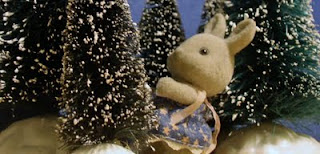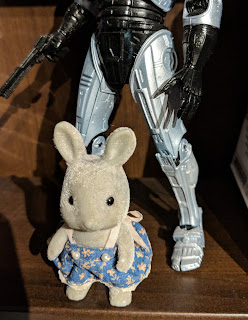Little House on the Prairie

Little House in the Big Woods and Little House on the Prairie.
1933, 1935, Laura Ingalls Wilder
I remember loving Big Woods the most when I read these as a child, but all I could specifically remember about the book was that they made maple sugar candy. It turns out, most of the book is about food; making it, finding it, storing it.
What fascinated me as a child about these books was the highly detailed description (the new editions even come with recipes in the back). In Big Woods, I felt like I could go maple sugaring, or smoke meat for the winter. In Prairie, the building of the house is so detailed that I felt like you could take this book with you after the collapse of civilization as a blueprint for a log cabin. The detailed descriptions of food preparation are a vivid reminder of how differently we live now from even just a few generations back.
The depiction of Native Americans in Little House on the Prairie is troubling from a modern perspective. It may sound like faint praise to say, 'well it could have been so much worse,' but I don't mean it to be. It's not an especially thorough depiction of the people or their culture or situation, but it doesn't pretend to be. What it is, is a vivid depiction of the confusion, fear and self-doubt of one family. Pa Ingalls assures his family that the Indians are moving on, which is what he was told. Throughout the book, though, it becomes clear that they are too far out to know, or for it to matter, what the government's "policy" is. Even in the local town, they don't have clear answers, or communication fast enough to affect the situation.
In a sense, the book could be read as a kind of apology for the settlers, a picture of how, while some are definitely racist, some just can't get the information necessary to understand. They're acting on the information they have, what they are taught. Laura is curious about the Native Americans, but terrified when she finally sees them. And why not? She's probably once seen someone of a different race in her whole short life, and never anyone who didn't dress like her parents or speak their language. What I think is interesting here, is not the history of the struggle between settlers and natives, but how it might have felt to be there, caught up in the middle of it.
There is a late scene where Laura and her family watch the Osage tribe ride by, after listening to days of arguing from the nearby camps. The adults are uncomfortable, obviously feel intrusive, and Laura inexplicably calls out to her father to get for her an Indian baby. Her parents are confused and troubled, and shush her, but she cries for it anyway. This scene is troubling on many levels, as one tries to fathom why she does this. Among the possible thoughts for her character are 'I can raise the baby better than these savages', 'I'll protect it from the bad things I've been hearing are going to happen to these people', or, most chilling, 'it's beautiful and I want it, it's better than the doll I have.' She's young, tired and confused, but ultimately the scene ends unexplained by the narrator.
One of the things I enjoyed about rereading these is how little narrator intervention there was. Each book is a series of events, presented calmly and sympathetically, but not overlaid with much patronizing moralizing. Even when Laura "knew better than to" speak out of turn or get out of bed or whatever, the reader is not encouraged to shame her behavior; the "knew better" is presented as part of Laura's thoughts.
The depiction of women is dated, but otherwise not terribly offensive. Caroline and Charles Ingalls work within their gender roles, but seem to be happy and both work hard for their family. Ma is often left with either the dog or the gun to protect herself and the girls when Pa is away.
The self sufficiency is what stayed with me all this time, though. The ability of a family to create a living (or start to create one) out of the bare earth is a nice thing to be reminded of.
3 Stars - A Good Book


Your description makes me want to re-read this series, too! I remember feeling the same way about being self-sufficient. Fine job, Blue Fairy ;)
ReplyDelete